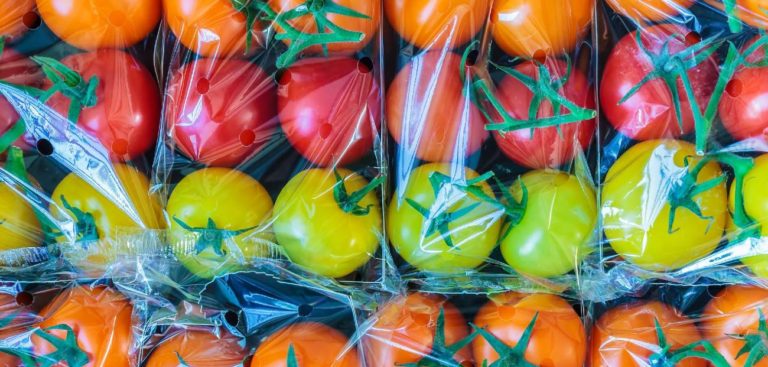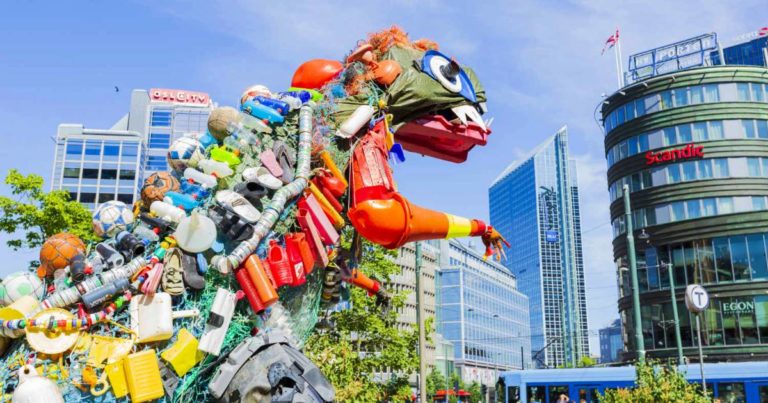In the not-so-distant past, human waste was mainly made up of excrement and food scraps, of completely natural origin, such as clay, leather and wood. These materials did not cause major impacts on the environment, as they were biodegradable and could therefore be easily reintegrated into the ecosystem. However, with the advancement of agriculture and the production of work tools, new types of waste began to emerge. Although they were still natural, the amount of waste generated was insignificant compared to current production.

Today, the situation is drastically different. The amount of waste we produce is immense, and man-made materials have undergone so many transformations that many of them cannot be degraded in a timely manner by nature. Humanity is trapped in a vicious cycle: we produce, consume and discard without thinking about the consequences, accumulating waste that, if not properly managed, could result in serious problems for the environment and public health.
Recycling: An Urgent Need
Recycling has emerged as a necessary response to the growing waste crisis. By recycling, we are giving a new life to materials that would otherwise pollute our planet. However, the problems caused by improper waste accumulation are many and serious. When waste is not disposed of correctly, it can result in a series of negative consequences:
- Waste dumped in rivers and streams can accumulate to the point of obstructing the flow of water, resulting in flooding in urban areas. This not only causes material damage, but also puts lives at risk.
- Exposed garbage attracts a variety of animals, starting with bacteria and fungi, which decompose organic matter. The smell of decomposition attracts other organisms, such as cockroaches, rats and vultures, which proliferate rapidly, bringing with them a series of diseases.
- When waste accumulates on the ground and begins to decompose, it produces leachate, a highly polluting liquid that dissolves toxic substances such as paints, resins and heavy metals. This liquid contaminates the soil, harming plant growth and introducing toxins into the food chain.
- During periods of rain, leachate and other contaminated liquids can seep into the soil and reach groundwater and groundwater, a process known as leaching. This results in the pollution of water sources that are essential for many species, including humans, and can even affect the ocean, causing significant ecological imbalance.
The Impact of Waste on the Atmosphere and Human Health
In addition to its direct impact on soil and water, waste also affects the atmosphere and human health. Even if solid waste is not burned, decomposing organic material generates gases such as methane (CH4) and hydrogen sulfide, which cause unpleasant odors, can stain the paintwork of neighboring buildings, and, in certain concentrations, can become explosive. These gases can also contribute to the development of respiratory diseases, especially in areas near landfills.
The common practice of burning waste to reduce its volume releases carbon dioxide (CO2) into the atmosphere, a gas that contributes significantly to the greenhouse effect and climate change. In addition, other toxic gases are released during burning, especially when the waste contains materials such as plastics. The burning of plastics, for example, can release halogenated acids that contribute to the acidification of soils and water, as well as to the formation of dioxins and furans, extremely toxic compounds.
Incineration and Its Challenges
Incineration of waste is a frequently used solution to reduce the amount of waste, but this practice also has its drawbacks. Although burning can reduce the volume of waste and eliminate some problems related to diseases and toxicity, it generates slag and ash that still need to be disposed of properly to avoid new environmental problems.
Furthermore, the incineration of waste, especially plastics, can result in the formation of hazardous substances such as dioxins and furans. For incineration to be safe and effective, a rigorous system of gas treatment is required, which is costly and therefore not widely practiced. This lack of adequate treatment can result in toxic emissions that affect public health and the environment.
Its Impact on the Landscape and Economy
The accumulation of waste not only affects the environment and public health, but also the aesthetics of landscapes and property values. Areas near landfills tend to lose value, becoming less desirable for housing or development. No one wants to live near a landfill, where the air is polluted, the soil is contaminated, and the landscape is bleak.
Furthermore, the space occupied by the waste cannot be used for other purposes. Each ton of loose waste takes up between 3 and 5 cubic meters, and with the constant increase in waste production, we are quickly running out of space to dispose of waste safely and efficiently.
Inadequate waste management also represents a significant cost for city councils and governments. Public spending on waste management is high, and this directly impacts the budget available for other essential services, such as health, education and security. If the waste problem were solved more efficiently, many other social and economic problems could also be alleviated.
Recycling as a Solution for a Sustainable Future
To combat the waste crisis, it is essential that everyone, from citizens to governments, commit to recycling and proper waste disposal practices. Recycling not only reduces the amount of waste that goes to landfills, but also creates new economic opportunities, such as job creation related to urban waste management.
Furthermore, recycling helps to preserve natural resources by reducing the need to extract new raw materials from nature. This contributes to sustainability and environmental protection, ensuring that future generations can enjoy a healthy planet.
Education and awareness among the population are essential for recycling to become a common practice. By understanding the negative impacts of waste and the benefits of recycling, people are more likely to adopt sustainable habits in their daily lives. This includes not only separating recyclable waste, but also reducing excessive consumption and reusing materials whenever possible.
Future of the Environment
Waste is one of the biggest environmental challenges of our time, but it is also an opportunity to rethink our consumption and disposal practices. If we continue to ignore the problem, we risk causing irreversible damage to the environment and our own health. However, if we act now by adopting more responsible recycling and waste management practices, we can create a more sustainable future for everyone.
It’s everyone’s responsibility. From the consumer who separates recyclable waste at home, to the businesses and governments who must implement effective waste management policies, we all have a role to play in protecting the environment. Recycling is only part of the solution, but it is a crucial step in reducing the impact of waste and preserving natural resources for future generations.
In the end, the choice is ours: either we eliminate waste, or waste eliminates us. Recycling and proper waste disposal are key to ensuring that the environment remains a healthy and habitable place for all. Let’s do our part.
Check out other interesting facts about recycling clicking here.
Learn how to make art by recycling, Click here.




The site is great, I loved it, it is very explanatory, has a lot of content and also contains images. Thank you very much, it's been a long time since I've seen such a good site!
Excellent
Thank you Camilla 🙂
I really liked it. We need to be aware that garbage is an evil that if we don't improve it will destroy our environment and our health.
Thank you for your concern and appreciation of nature.
I really liked this site. It was very good. I was able to do my school work thanks to this site that helped me a lot with the sentences, paragraphs, etc. And with the images too ✌?????
Woohoo!
OK, I LIKED IT, BUT WHAT I WAS LOOKING FOR WAS HOW WE CAN PREVENT MORE TRASH FROM BEING DEPOSITED IN THE OCEANS. THIS SITE IS VERY GOOD. I WILL START COMING TO IT. THANK YOU FOR YOUR COOPERATION!
What prevents waste from ending up in the oceans is efficient selective collection, Maria Alice. See more about this here: http://setorreciclagem.com.br/category/coleta-seletiva
Reducing and reusing is also very important. See more here: http://setorreciclagem.com.br/category/3rs
Thank you very much this post helped me a lot in my science project
I'm so happy to be able to help <3